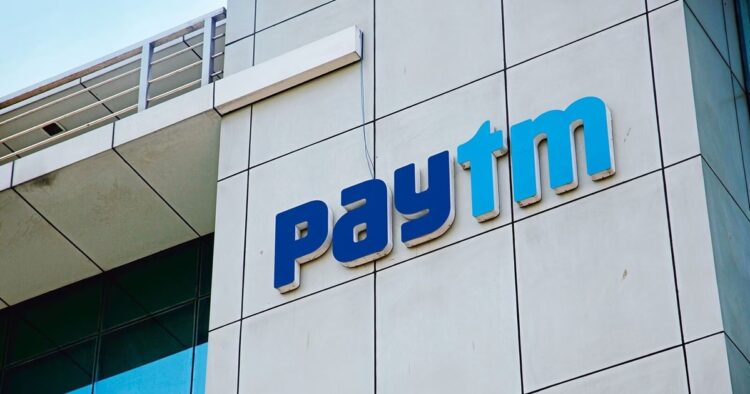The shares of Paytm took a nosedive, dropping over a percent to Rs 430 on February 6, following three consecutive sessions of being locked in a lower circuit. This decline comes in the wake of the Reserve Bank of India (RBI) imposing stringent restrictions on its payments bank business. Among the curbs imposed is a prohibition on accepting new deposits and conducting credit transactions after February 29.
On the preceding day, February 5, the stock of Paytm’s parent company, One97 Communications, experienced a significant downturn, closing 10 percent lower at Rs 438.5, locked in the lower circuit. Over the last three trading sessions, the shares witnessed a substantial decline of 42 percent on the exchanges, plummeting from Rs 761.4.
Adding to the company’s woes, the Confederation of All India Traders (CAIT) issued an advisory, urging brick-and-mortar businesses to explore alternative payment applications. CAIT highlighted the potential financial disruptions for users, particularly small traders, vendors, hawkers, and women, who heavily rely on Paytm for transactions.
In response to the crisis, various brokerages have downgraded Paytm’s stock and adjusted their target prices downward. Jefferies revised its target to Rs 500, while Macquarie reduced it to Rs 650. Notably, the closing price of Paytm at Rs 438.5 fell considerably below both brokerage target prices.
Despite the challenging circumstances, Paytm endeavored to address the situation, disputing the findings of an Enforcement Directorate (ED) investigation amid reports suggesting potential probes into money laundering charges. Paytm expressed its commitment to resolve the matter swiftly and transparently.
To reassure employees amidst the ongoing turmoil, founder Vijay Shekhar Sharma affirmed that there would be no layoffs. The company is actively engaging with the Reserve Bank of India (RBI) and exploring collaborations with other banks for potential partnerships. Sharma emphasized the need for clarity regarding the situation and pledge

















Comments